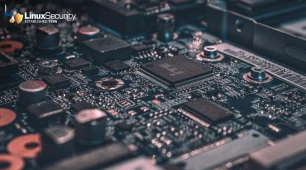
The Linux kernel community recently issued an EOL announcement regarding the 6.11 kernel series, urging sysadmins to upgrade quickly to 6.12. This announcement has significant ramifications for secure Linux system administration, as operating outdated kernels can expose systems to unpatched security flaws and associated risks.
The 6.12.y branch offers continuous maintenance and security updates to ensure critical safeguards are in place. Enhancements included improved hardware support, performance optimizations, and bug fixes, which streamline system operations to provide greater reliability and efficiency for system operations. Major distributions like Ubuntu and Fedora have already started adopting the Linux 6.12 kernel upgrade.
This announcement is an urgent call to action for admins: Upgrade to Linux kernel 6.12 as soon as possible! Why does upgrading matter, and what can we expect from the 6.12.y branch? Let's dive deeper into the aspects of this transition to understand its impact on the security and administration of your Linux systems.
The End-of-Life Status of Linux 6.11: A Risk You Can't Ignore
 The end-of-life status of Linux 6.11 marks an essential point in its lifecycle. It signals to users that the community will no longer provide security patches, bug fixes, and updates to this kernel series.
The end-of-life status of Linux 6.11 marks an essential point in its lifecycle. It signals to users that the community will no longer provide security patches, bug fixes, and updates to this kernel series.
Utilizing an EOL kernel is like leaving your doors unlocked in an unsafe neighborhood. Without active support for its updates and patches, any newly discovered vulnerabilities leave admins at risk of attacks compromising system integrity, confidentiality, and compliance. As infosec professionals know, modern security threats move quickly, with attackers seeking vulnerable systems they can exploit. By continuing with Linux 6.11, you risk potential breaches that could compromise your systems and critical data.
Availability of the 6.12.y Branch: What's New and Why You Should Care
With the 6.12.y branch now available, upgrading from an outdated 6.11 kernel series should be nearly effortless. Not just another version, 6.12.y represents another step in Linux kernel evolution, with regular maintenance updates and security patches safeguarding systems against vulnerabilities.
Upgrading to Linux 6.12 assures continuing support, meaning any security vulnerabilities discovered will be quickly addressed with timely patches. This is essential for anyone managing Linux servers since being up-to-date on security patches is integral to maintaining a safe and resilient environment. Furthermore, performance optimizations and bug fixes keep this series stable and efficient.
Examining Notable Changes in Linux 6.12: A Roadmap for Transition
 The transition from Linux 6.11 to 6.12 brings exciting changes, new features, and enhancements, including:
The transition from Linux 6.11 to 6.12 brings exciting changes, new features, and enhancements, including:
- Improved Hardware Support: The 6.12 kernel features improved support for new and emerging hardware technologies, providing administrators with essential compatibility and optimal performance when using more modern equipment. Intel and AMD processor support has also been greatly expanded, enabling better resource utilization efficiency and management.
- Security Enhancements: Linux 6.12 stands out for its commitment to security, with features such as KFENCE (Kernel Electric-Fence), an error detection and mitigation system designed to identify memory corruption bugs before they can be exploited by other means.
- Filesystem Improvements: Filesystem reliability and performance have significantly improved over the years. In particular, Btrfs and EXT4 filesystems have received updates that will enhance reliability and performance to better suit demanding workloads.
- Network Enhancements: The 6.12 kernel features enhanced networking features, such as improved handling of high-throughput data transfers and lower latency networking operations, which are essential in server environments.
- Performance Optimizations: Regular performance tuning and optimization ensure Linux 6.12 can manage more workloads efficiently by improving CPU scheduling, memory administration, and overall system responsiveness.
- Bug Fixes and Stability Improvements: As with every kernel release, 6.12 contains numerous bug fixes to address issues discovered during previous releases and to further increase system stability and reliability by decreasing crashes or downtime.
Adoption by Major Linux Distributions
 Adopting new kernel releases by major Linux distributions is often seen as a reliable barometer of their stability and suitability for production environments. Many prominent distros have begun adopting Linux 6.12 into their systems already, signifying its robustness as well as the trust that members of the community have placed in this release. Such distros include:
Adopting new kernel releases by major Linux distributions is often seen as a reliable barometer of their stability and suitability for production environments. Many prominent distros have begun adopting Linux 6.12 into their systems already, signifying its robustness as well as the trust that members of the community have placed in this release. Such distros include:
- Ubuntu: Widely known for its reliability in server environments, Ubuntu now incorporates the Linux 6.12 kernel in its latest releases to provide users access to its performance and security enhancements.
- Fedora: Fedora continues its tradition of adopting cutting-edge technologies early. It took an innovative stance with its Linux 6.12 integration, giving users access to its improvements and features before other distributions do so. Fedora often sets an example that other distributions follow closely behind.
- Arch Linux: Recognizing that its users require cutting-edge software, Arch Linux quickly added the 6.12 kernel to provide its users with the most up-to-date features and innovations.
These early adopters attest to the reliability and suitability of Linux 6.12 for production use, assuring administrators contemplating an upgrade.
Our Final Thoughts on Embracing the Future of the Linux Kernel
As Linux 6.11 nears end-of-life status, system administrators and infosec professionals must update to a more modern kernel. Updating to the 6.12.y branch offers continued security support and improvements that enhance compatibility, system performance, and protection.
The risks of using outdated software have become too great in today's security landscape, where vulnerabilities are constantly discovered and exploited. Continuing support through version 6.12.y mitigates these risks and provides enhancements that improve compatibility, system performance, security features, and overall protection features.
The Linux 6.12 kernel represents its constant evolution and improvement, offering administrators the means to ensure their systems remain secure, efficient, and capable of taking advantage of new hardware and technological advancements.
Have you updated to Linux 6.12? Reach out to us @lnxsec and let us know!

















